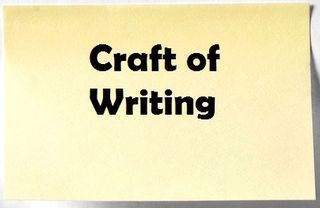“A
 scrupulous writer, in every sentence that he writes, will ask himself at least four questions, thus: 1. What am I trying to say? 2. What words will express it? 3. What image or idiom will make it clearer? 4. Is this image fresh enough to have an effect?” – George Orwell
scrupulous writer, in every sentence that he writes, will ask himself at least four questions, thus: 1. What am I trying to say? 2. What words will express it? 3. What image or idiom will make it clearer? 4. Is this image fresh enough to have an effect?” – George Orwell
“Say all you have to say in the fewest possible words, or your reader will be sure to skip them; and in the plainest possible words or he will certainly misunderstand them.” – John Ruskin
“It’s not about the writing. It's about the feelings behind the words.” – Takayuki Ikkaku, Arisa Hosaka and Toshihiro Kawabata, “Animal Crossing: Wild World”
“Do not put statements in the negative form. And don’t start sentences with a conjunction. If you reread your work, you will find on rereading that a great deal of repetition can be avoided by rereading and editing. Never use a long word when a diminutive one will do. Unqualified superlatives are the worst of all. De-accession euphemisms. If any word is improper at the end of a sentence, a linking verb is. Avoid trendy locutions that sound flaky. Last, but not least, avoid cliches like the plague.” – William Safire, “Great Rules of Writing”
“Be obscure clearly.” – E.B. White
Need an editor? Having your book, business document or academic paper proofread or edited before submitting it can prove invaluable. In an economic climate where you face heavy competition, your writing needs a second eye to give you the edge. I can provide that second eye.
Related articles
 Improve writing's texture by avoiding repetition
Improve writing's texture by avoiding repetition
Published on January 19, 2013 04:47
 newest »
newest »
 newest »
newest »
 Hi Marla,
Hi Marla, Too bad you had to leave! For us authors, it was an amazing event. I'm hoping they repeat it next year so we can all pitch in and help promote it.
Too bad you had to leave! For us authors, it was an amazing event. I'm hoping they repeat it next year so we can all pitch in and help promote it. You do? I'm honored. I'd have to have sold you the new one, then. LOL
You do? I'm honored. I'd have to have sold you the new one, then. LOL





I was in your area (well, close) at an author's event at the Mabel Tainter Center in Menomonee, WI, yesterday. Super event, it had more than 25 authors.